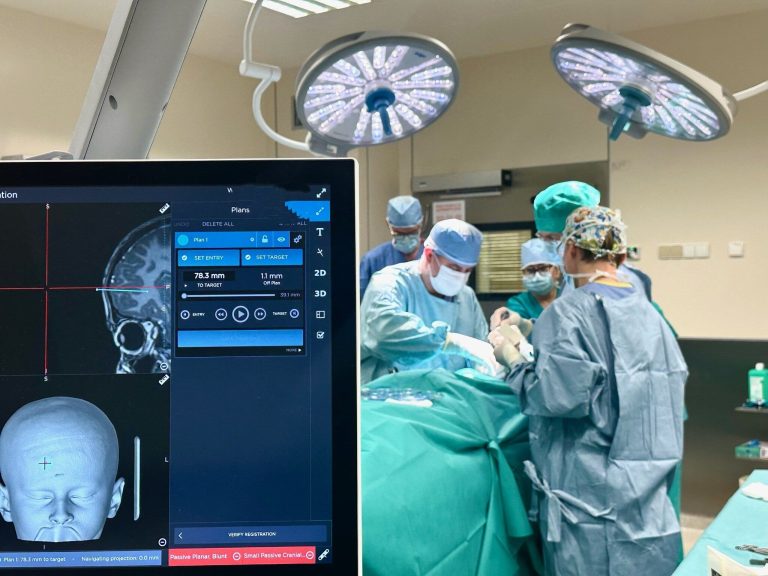Hormonal disorders in women and men – causes, symptoms, diagnosis, treatment

Hormonal disorders cause non-specific symptoms and health problems. The most common hormonal disorders include: hyperthyroidism, hypothyroidism, Hashimoto’s disease, and polycystic ovary syndrome. What are the causes of hormonal disorders? What symptoms should prompt a visit to an endocrinologist? We explain.
- The human endocrine system
- What is the most common cause of hormonal disorders?
- Symptoms of hormonal disorders in women
- Symptoms of hormonal disorders in men
- Diagnosis and treatment of hormonal disorders
General malaise, chronic fatigue, weight fluctuations (uncontrolled weight gain or loss), skin changes, mood disorders and menstrual disorders may indicate hormonal disorders. Hormonal problems more often affect women, and the first symptoms of hormonal disorders are often underestimated. It is worth learning more about the causes and symptoms of hormonal disorders, because early detection of abnormalities in the functioning of the endocrine system allows you to avoid serious complications.
The human endocrine system
The endocrine system is made up of endocrine glands (endocrine glands), which release small amounts of hormones into the blood. The endocrine system of the human body controls the course of many biological reactions. The release of the appropriate amount of hormones into the blood helps maintain the body’s homeostasis. Hormones are secreted in:
-
pituitary gland,
-
cerebral hypothalamus,
-
parathyroid gland,
-
thyroid,
-
adrenal cortex and adrenal medulla,
-
pancreas,
-
testicles,
-
ovaries.
The endocrine glands also include the pineal gland and the thymus.
Hormonal disorders, i.e. increased or decreased secretion of hormones by endocrine glands, may have various causes. Sometimes hormonal disorders may have a physiological basis and are related, for example, to pregnancy or menopause, and appear after discontinuation of hormonal contraception.
Hormonal disorders may also have a medical basis – in this case they are related to, among others: with diseases of the endocrine glands – hormonal disorders may occur in the course of, for example, cancer diseases that disturb the production of a given hormone. Sometimes hormonal disorders are associated with multiglandular syndromes of autoimmune origin, which cause dysfunction of several endocrine glands.
In the case of many endocrine diseases, non-specific symptoms appear, which may be mistaken for the effects of incorrect eating habits and too little exercise, e.g. uncontrolled weight gain, decreased muscle mass, skin changes, excessive sweating and reduced exercise capacity. Assuming that the troublesome symptoms are related to an unhealthy lifestyle, we may exacerbate the disease. To avoid complications related to hormonal disorders, which in some cases pose a threat to health and life, you should regularly undergo preventive examinations and consult a doctor about any symptoms that may indicate the disease.
Important! Hormonal disorders require appropriate treatment. Hormonal dysregulation disrupts the functioning of many organs and systems, contributing to the development of other diseases.
What is the most common cause of hormonal disorders?
The most common causes of hormonal disorders include chronic stress, changes occurring in the body in adolescents during puberty and adults of reproductive age, changes occurring in the body during menopause and andropause, and diseases of the endocrine glands.
The risk of hormonal disorders, which result from hormonal dysregulation, is increased by, among others:
-
genetic predispositions,
-
following a high-calorie diet,
-
starving yourself or significantly reducing the caloric value of your meals,
-
taking certain medications,
-
sedentary lifestyle,
-
very intense lifestyle,
-
increased physical effort,
-
alcohol abuse and taking other psychoactive substances.
Women are more susceptible to hormonal disorders. Hormonal disorders in the fair sex are often associated with physiological fluctuations in hormone levels during pregnancy and menopause, as well as fluctuations in hormone levels during the menstrual cycle.
Diseases that cause hormonal disorders include: thyroid diseases, adrenal gland diseases and diseases of the testicles and ovaries. Less frequently, hormonal disorders are caused by, for example, benign and malignant tumors of the pituitary gland and hypothalamus that secrete hormones.
The most common causes of hormonal disorders in women include: changes in hormonal balance related to menopause, polycystic ovary syndrome, hyperthyroidism, hypothyroidism, Hashimoto’s disease and excess androgens (excess male sex hormones).
The most common causes of hormonal disorders in men include: changes in hormonal balance related to andropause, disorders in testosterone secretion, disorders related to thyroid function, and disorders in melatonin secretion.
Symptoms of hormonal disorders in women
Common symptoms of hormonal disorders in women include:
-
dysregulated menstrual cycle – scanty menstruation, heavy menstruation, irregular menstruation, anovulatory cycles,
-
sterility,
-
breast pain,
-
skin changes (e.g. acne, excessive dryness and peeling of the skin),
-
deterioration of hair condition, e.g. excessive hair loss and baldness,
-
hot flushes,
-
lack of energy and chronic fatigue,
-
constant feeling of cold,
-
excessive hair, e.g. on the face, stomach, chest and back,
-
excessive sweating,
-
mood swings, e.g. low mood,
-
sleep disorders,
-
decreased libido.
Symptoms of hormonal disorders in men
Common symptoms of hormonal disorders in men include:
-
chronic fatigue,
-
decreased libido,
-
impotence (erectile dysfunction),
-
sterility,
-
excessive weight gain,
-
mood disorders,
-
irritability,
-
aggression,
-
disturbed daily rhythm of the body.
In both women and men, hormonal imbalance contributes to the development of serious diseases, including: metabolic diseases, heart and circulatory system diseases, as well as cancer.
Diagnosis and treatment of hormonal disorders
The above symptoms should prompt a visit to a doctor. Diagnostics of hormonal disorders includes, among others: hormonal tests, thanks to which it is possible to determine the level of hormones in blood serum and urine. The detection of abnormalities in the functioning of the body is also facilitated by imaging tests, e.g. ultrasound of the thyroid gland and ultrasound of the reproductive system.
Hormonal disorders require treatment that is tailored to the cause of their occurrence. In the case of hormone deficiency, treatment with hormonal preparations may be used to replenish their levels in the body, e.g. hormone replacement therapy, but the treatment of hormonal disorders is not only pharmacological treatment. In some cases, it is necessary to perform surgical procedures, which include, for example, removal of cancerous lesions that interfere with the functioning of the endocrine glands, as well as specialized treatment of chronic diseases that cause hormonal disorders.
Sources:
-
A. Szczeklik, Internal diseases, Volume I, Medycyna Practical Publishing House, Kraków, 2005
-
S. Konturek, Human Physiology Volume 5 Digestive system and internal secretion, Jagiellonian University Publishing House, Kraków, 2016
-
W. Zgliczyński, Wielka Internal Medicine Endocrinology Part 1, Medical Tribune Polska Publishing House, 2021
-
W. Zgliczyński, Wielka Internal Medicine Endocrinology Part 2, Medical Tribune Polska Publishing House, 2022






